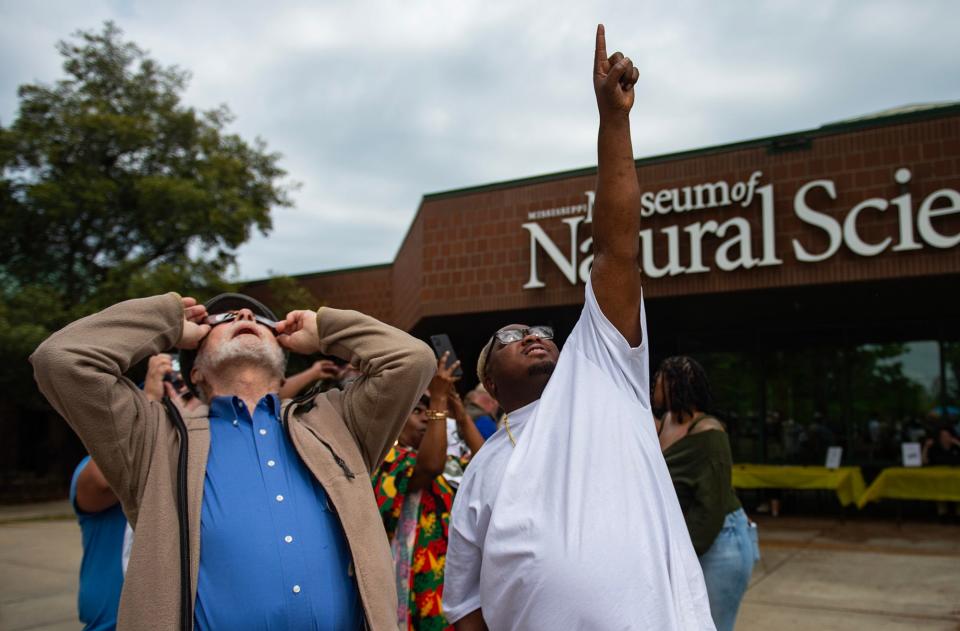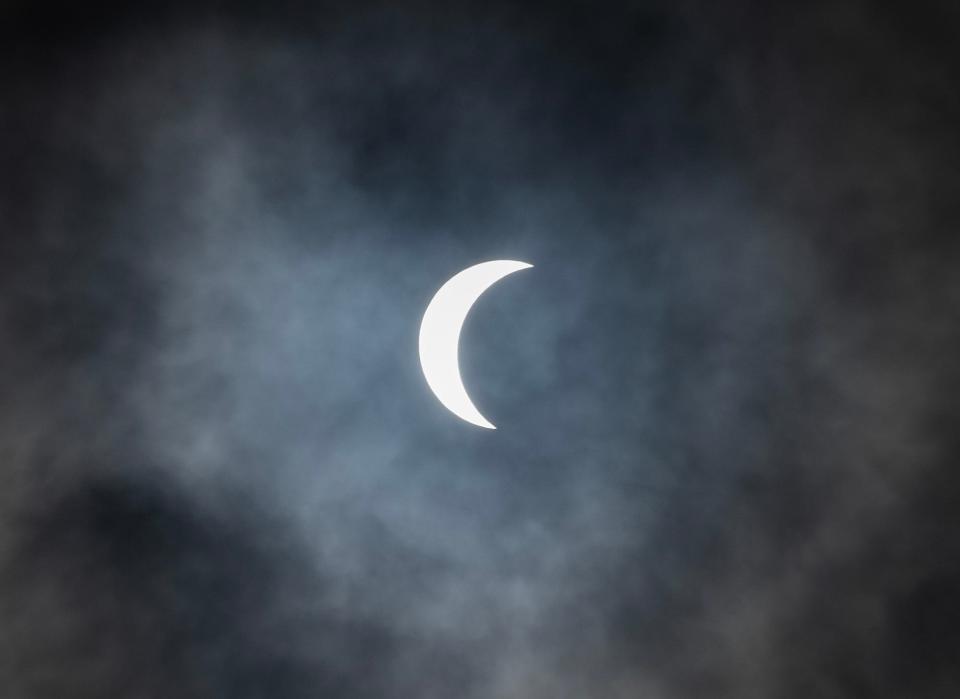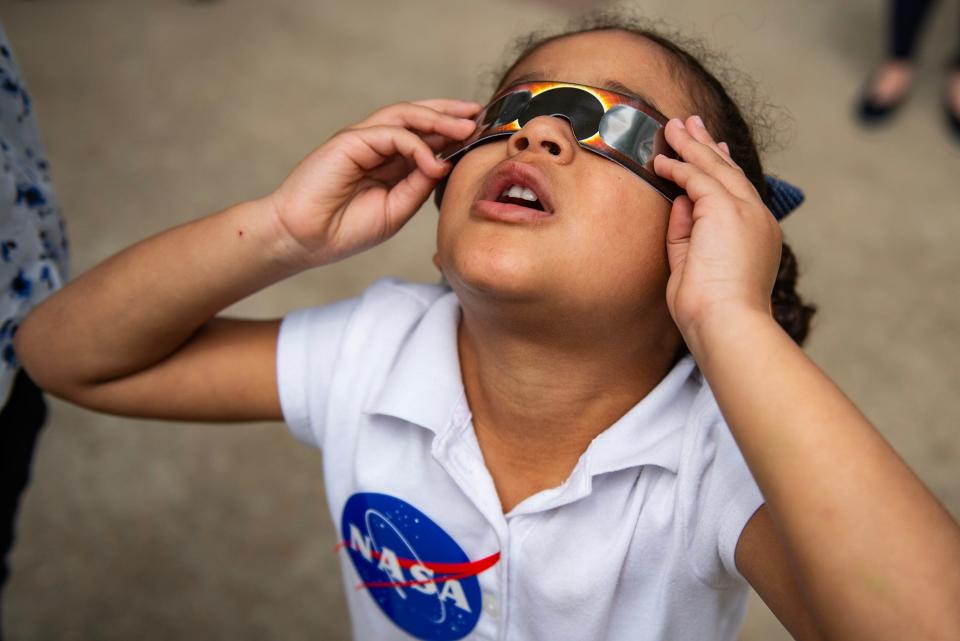'A couple of good glimpses.' Heavy cloud cover limits eclipse viewing, doesn't dampen spirits
People across all walks of life gathered at the Mississippi Museum of Natural Science on Monday to witness a rare celestial event — a nearly total solar eclipse.
Katie Tupy, education coordinator at the Mississippi Museum of Natural Science, told the Clarion Ledger that the eclipse brought about a 90% coverage — at least that was when the crowds of people straining their necks skyward could see the eclipsed sun through heavy clouds.
"The next eclipse like this isn't supposed to happen for another 20 years," Tupy said. "It's not necessarily going to a once in a lifetime, but this is definitely going to be special and unique."
Around 1:30 p.m., a crowd of at least 75 people, wearing their eclipse glasses, formed outside of the museum in anticipation.
Some people stood alongside their family and friends with their heads titled back to look at the sky. Others lied down on their backs on the ground that was covered with blankets.
As time neared 1:50 p.m., the moon slowly crept in front of the sun and a light breeze filled the air along with the voices of various people shouting, "It's here."

More on the eclipse: How much of the solar eclipse will you see in your town?
The site of a "glowing sun" began to partially peak through the clouds, drawing grasps and cheers of excitement from the attendees with some stating, "I can see it," and "that's so cool."
Josias Lucas, of Jackson, said he attended the event because he has always had a fascination with science and space. Lucas said he did not want to miss out on this four-to-five-year experience.
"I was glad that Visit Jackson posted on their page about this event here at the museum," Lucas said. "I was able to come out and get some educational information about what's going on today with the eclipse."
![O'Bai Smooth-Bangura, 16; Suraya Smooth-Bangura, 10; Wendy Smooth and her mother Viola Smooth watch the eclipse during an event at the Mississippi Museum of Natural Science in Jackson on Monday. "We came from the path of totality to be with [Viola]," Wendy of Columbus, Ohio, said.](https://s.yimg.com/ny/api/res/1.2/ReF1Y7Wa4PYBRLGVISxnXA--/YXBwaWQ9aGlnaGxhbmRlcjt3PTk2MDtoPTY0OA--/https://media.zenfs.com/en/the-clarion-ledger/ed6b65dd733505b4c976599004d4585d)
More on the eclipse: 2024 solar eclipse: Will the weather cooperate for viewing it in MS?
Despite the heavy cloud coverage and light sprinkles of rain, Lucas said this did not make the event "unfavorable" for him to watch.
"I had faith that it would be enough clear skies for us to see it, and we were able to see it. So, I guess April rain brings May blessings," Lucas said.
The museum worked in collaboration with NASA for the viewing event. The museum had expected much larger crowds, but the weather no doubt kept some viewers away.
In other parts of the city, workers left their offices for peak viewing of the eclipse, which occurred at 1:52. Downtown, groups were in from of the governor's mansion and at Trustmark Bank, all looking upward at the same time.

It will be 21 years before Mississippi next has a chance to see a solar eclipse at this scale. But when that eclipse comes in 2045, Mississippi will be in the path of totality.
"This will be the last total solar eclipse in the continental United States until 2045," said Chris Sirola, associate professor of astronomy and physics at the University of Southern Mississippi. "Coincidentally, the '45 eclipse will be total in most of Mississippi."
Staff writer Brian Broom contributed to this report.

This article originally appeared on Mississippi Clarion Ledger: Solar eclipse 2024 Jackson, MS

